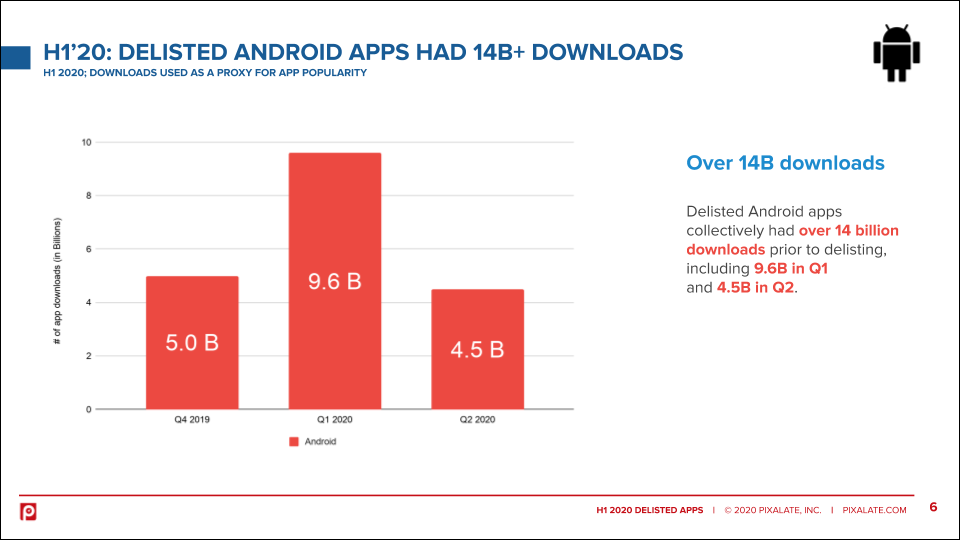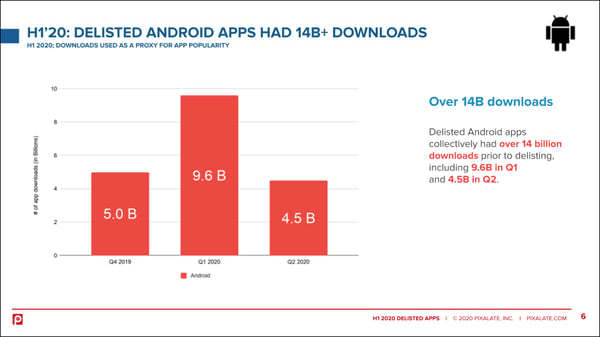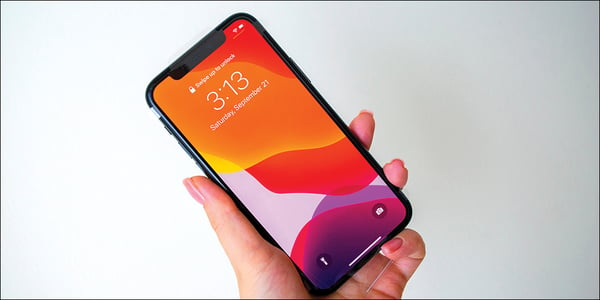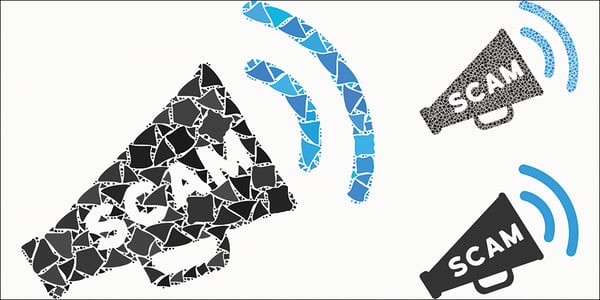
This week's review of ad fraud and quality in the digital advertising space.

Pixalate's latest research details apps that were delisted across the Google Play and Apple App stores in H1 2020. There were over 460,000 Android apps delisted in H1 2020, and those apps combined for over 14 billion downloads prior to delisting (over 30,000 per delisted app on average).

Apple will delay its proposed ad tracking restrictions via IDFA changes until early 2021, reported TechCrunch, citing the need to give developers more time. "Although Apple cites the necessity of giving developers time, major advertising companies like Facebook have warned that the change could severely impact their operations," added TechCrunch.

"While [Apple's attribution solution] SKAdNetwork is likely to help cut down on click and view-through attribution fraud, [MoPub Product Manager David] Gregson said, it could make mobile ad fraud trickier to track while also making it easier for bad actors to disguise fake traffic," reported AdExchanger.
The article added: "Although iOS overall is considered less susceptible to chicanery than the open-source Android operating system, the Apple ecosystem is still vulnerable to fake traffic, bogus clicks, non-visible ads and other common forms of ad fraud."

"TikTok’s #ForYou page has become a haven for scammers selling fake mobile applications, diet pills, drop-shipped goods, fake gift cards and more," reported MediaPost, citing research from Tenable.
"[Tenable research engineer Satnam] Narang also notes that TikTok doesn’t seem to monitor fraud on its platform because it allows scammers to use false celebrity endorsements," MediaPost added.

"Programmatic is on the rise since the advertising doldrums of the early novel coronavirus pandemic," reported Adweek. "The travel sector is still struggling, but other verticals are spending big on marketing."
*By entering your email address and clicking Subscribe, you are agreeing to our Terms of Use and Privacy Policy.
These Stories on Weekly Recaps
*By entering your email address and clicking Subscribe, you are agreeing to our Terms of Use and Privacy Policy.

Disclaimer: The content of this page reflects Pixalate’s opinions with respect to the factors that Pixalate believes can be useful to the digital media industry. Any proprietary data shared is grounded in Pixalate’s proprietary technology and analytics, which Pixalate is continuously evaluating and updating. Any references to outside sources should not be construed as endorsements. Pixalate’s opinions are just that - opinion, not facts or guarantees.
Per the MRC, “'Fraud' is not intended to represent fraud as defined in various laws, statutes and ordinances or as conventionally used in U.S. Court or other legal proceedings, but rather a custom definition strictly for advertising measurement purposes. Also per the MRC, “‘Invalid Traffic’ is defined generally as traffic that does not meet certain ad serving quality or completeness criteria, or otherwise does not represent legitimate ad traffic that should be included in measurement counts. Among the reasons why ad traffic may be deemed invalid is it is a result of non-human traffic (spiders, bots, etc.), or activity designed to produce fraudulent traffic.”

